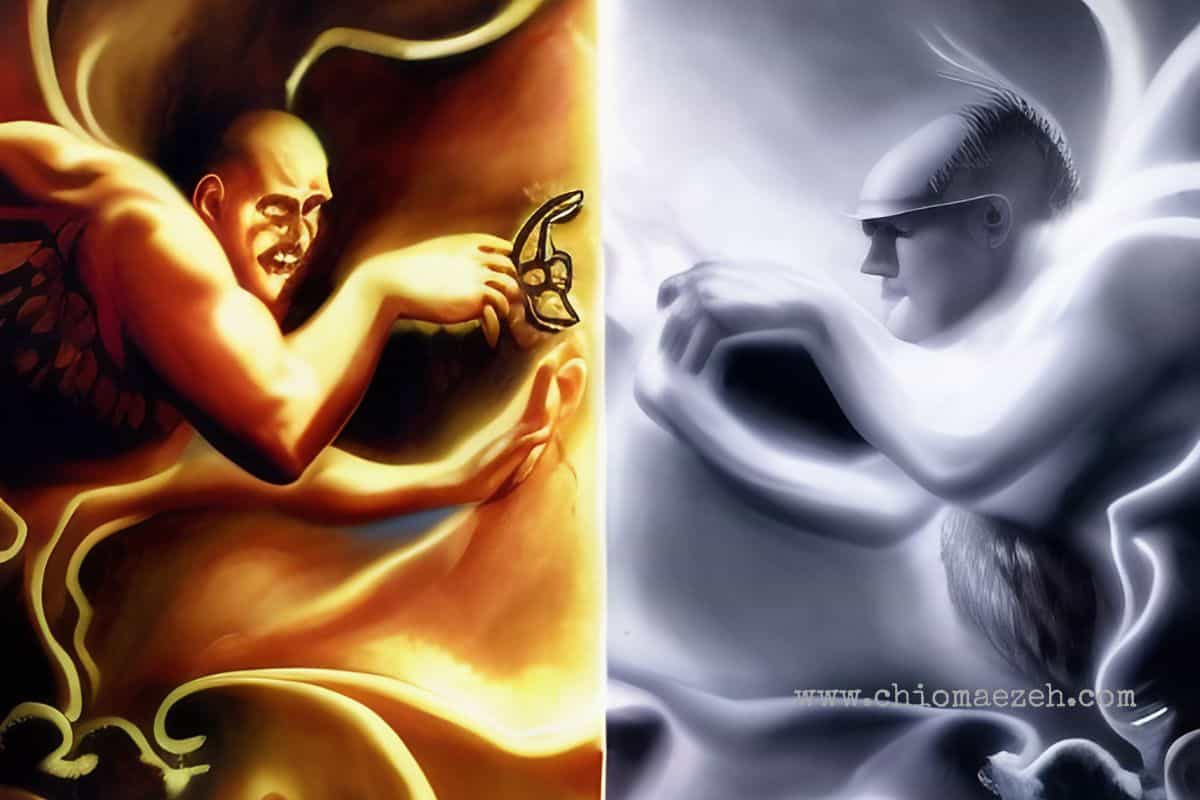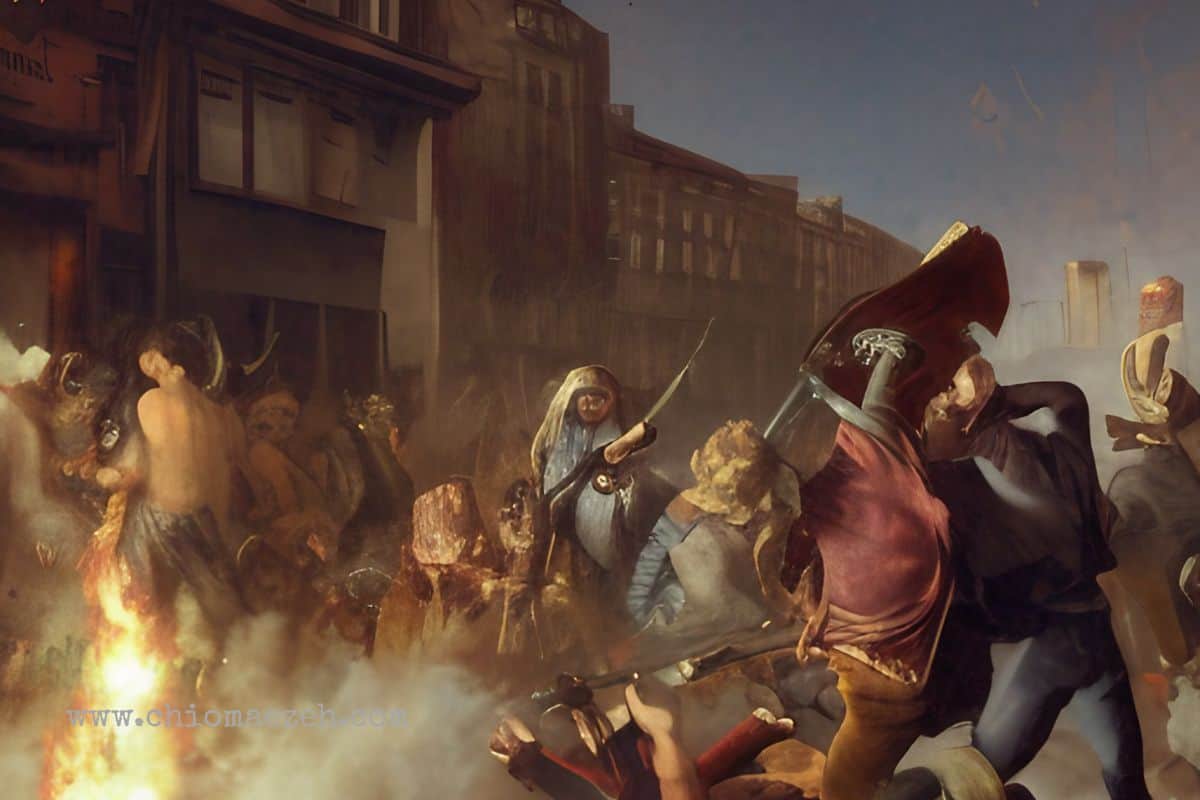Examples Of Themes In Literature & Books: Meaning & Types
A theme in literature is an underlying idea, message, or moral that is expressed throughout a work of writing. It’s not necessarily stated directly, but instead can be implied or suggested through the characters, events, and symbols that appear throughout the text.
Themes often reflect a certain aspect of life or a particular point-of-view on a particular issue. Some examples of themes in literature include the power of love, coming of age, good versus evil and fate versus free will.
This article takes a look at some common examples of themes in literature with explanations for each one to help you get started.
👉Just getting started? See our complete guide on themes in literature

Let’s Talk
Are you a writer aspiring to pen a masterpiece that never fails to captivate? Look no further. Reach out to us and uncover how we can help you to take your writing to unprecedented heights!

What Are Themes In Literature?
A theme is the central idea or message that a story conveys to its readers. The theme is the purpose of the author to get his or her message across. It helps the reader understand the story better, and can also be used to reinforce the main idea of the story. Some common themes in literature include love, friendship, courage, betrayal, death, family, justice and truth.
These themes can be found in all types of literature including novels, short stories, poetry and plays. Themes can be difficult to spot as they usually represent abstract concepts rather than tangible ones.
For instance, “The Catcher in the Rye” by J.D. Salinger is about an adolescent boy’s journey into adulthood. But it explores themes such as alienation from society and loss of innocence. Similarly, William Golding’s “Lord of The Flies” is a story about young boys stranded on an uninhabited island. However, it explores themes such as morality and survival instincts.
Examples of Themes In Literature
1. Good vs Evil
This is a classic theme that has been explored for centuries in literature from Homer’s Odyssey to JRR Tolkien’s Lord of the Rings trilogy to Stephen King’s It. In these stories, characters must choose between good or evil paths with their choices determining the fate of those around them as well as themselves.

This theme has been explored in many stories, such as JRR Tolkien’s Lord of the Rings trilogy or George Orwell’s Animal Farm. In these tales, characters must decide between their moral convictions and succumbing to the temptation of evil.
2. Identity
This is another oft-explored theme in literature. It often delves into questions of who we are and how our identities shape the choices we make throughout life. This leads us down unforeseen roads towards self-discovery or acknowledgement.
Authors like Toni Morrison and Zora Neale Hurston have used identity as a major theme in their literature, with works such as Beloved and Their Eyes Were Watching God. These stories explore how individuals search for meaning within themselves while struggling against oppressive forces that seek to define them by race, gender, class etc
3. Love
The theme of love is a common thread throughout literature, from the ancient Greeks to contemporary works. Romance, familial bonds and companionship are all themes explored in many celebrated works of literature when it comes to the concept of love.

One example of this is William Shakespeare’s Romeo and Juliet, in which two star-crossed lovers defy their families’ rivalry and risk everything for each other. Other notable works such as Pride and Prejudice, Wuthering Heights, the Harry Potter series and The Fault in Our Stars all explore love’s various manifestations.
4. Loss & Grief.
Loss and grief are ubiquitous themes in literature, whether it be physical loss such as death or emotional loss due to separation.
Authors often use loss and grief as an opportunity to explore themes of resilience and hope despite tragedy—think Harper Lee’s To Kill A Mockingbird or Alice Sebold’s The Lovely Bones. Characters grapple with grief over loved ones who have died too soon while also learning lessons about life along the way .
5. Coming Of Age
A narrative in which a protagonist progresses from naivety to maturity, through encounters that shape their development, is referred to as a coming-of-age story.

Stories about coming-of-age can be found across all genres —from classic novels like Mark Twain’s Adventures Of Huckleberry Finn to modern YA fiction such as John Green’s Looking For Alaska. These tales focus on young protagonists trying to find themselves amidst confusion over identity crisis’ and societal pressures.
6. Family Dynamics
Family dynamics are at the heart of many great works like Arthur Miller’s Death Of A Salesman, F Scott Fitzgerald’s The Great Gatsby, and John Steinbeck’s East Of Eden. Through complex relationships between parents and children, siblings, and spouses, these books examine themes like loyalty, betrayal, guilt, responsibility, etc.
7. Redemption and Forgiveness
This concept of redemption and forgiveness can be a powerful theme explored through narrative arcs. They often provide closure not only for the characters but also for readers too. This allows everyone to move forward in life better than before.

Popular redemption-themed stories include Charles Dickens’ A Christmas Carol where Ebenezer Scrooge learns lessons about compassion kindness generosity through visits from three ghosts on Christmas Eve.
8. Survival And Perseverance
Another common thread woven into many pieces of literature is that one must survive and persevere no matter what life throws your way whether its natural disasters, disease, war etc.
Survival is a powerful theme seen in many books including Margaret Atwood’s The Handmaid’s Tale or Cormac McCarthy’s The Road. Both post apocalyptic stories have characters who must fight not only external threats but also internal struggles related to fear, hope, and morality.
9. Rebellions and revolutions
These serve important purposes in literature, challenging the status quo and inspiring readers to take action against oppression and injustice.

Notable works such as Victor Hugo’s Les Misérables, Emily Bronte’s Wuthering Heights, Alexandre Dumas’ The Count of Monte Cristo and Ralph Ellison’s Invisible Man illustrate the power of rebellion and revolution in literature to disrupt the status quo and encourage readers to stand up against oppression.
10. Power & Control
This concept deals with power dynamics between people based upon wealth, class, race, gender, etc. Notable examples include George Orwell’s Animal Farm depicting an oppressive regime lead by pigs over other animals. William Golding’s Lord Of Flies also show how unchecked power corrupts individuals regardless age when left without proper guidance .
11. friendship
Friendship is concept that go beyond the scope of love. Friendship provide individuals with a support system in times of hardship, creating a stronger sense of unity. In works like Ray Bradbury’s Fahrenheit 451, Louisa May Alcott’s Little Women and Toni Morrison’s Beloved, we can observe this idea of family and friendship being a source of strength in times of difficulty.

Themes in literature are an integral part of any story and can be used to great effect. We can see from the above examples how themes may contribute to a book’s complexity and significance. Moving on from this, we’ll look at some common examples of themes in literature of America.
👉Aspiring author? See our guide on how to write a story in 9 steps!
What Are The Common Examples Of Themes In American Literature?
1. Coming of Age:
Stories about the passage from youth to maturity, and all the difficulties that accompany it.
2. Loss of Innocence
Exploring how innocence is lost as one grows up and matures in life’s journey.
3. The American Dream
A belief that anyone can achieve success through hard work and determination regardless of their background or circumstances in life.
4. Nature vs Nurture
Examining how environment shapes a person’s character, behavior, beliefs, values, etc., while also considering the influence of biology on those same traits/attributes
5. Isolation & Alienation
Looking at loneliness due to social ostracism or lack of understanding by others around them; feeling disconnected from society despite being surrounded by people who are similar yet different than oneself
6 .Race & Ethnicity Issues
Analyzing conflicts between different racial groups living within America’s borders along with exploring issues related to assimilation into mainstream culture versus preserving cultural identity
7. Love & Romance
Investigating relationships between lovers, families, friends; examining dynamics such as loyalty, betrayal, passion, heartbreak, etc.
8. Societal Injustice
Critiquing power dynamics in a society that privileges some while oppressing others; looking at the effects of prejudice, discrimination and other forms of oppression.
9. Religion & Spirituality
Exploring themes related to faith, morality, redemption, salvation, etc.
10. Self-Discovery & Identity.
Examining one’s own identity as well as their place in the world; discovering who they are and how it relates to those around them.
Vide Recommendation
FAQs On Examples of Themes In Literature
What Are Some Examples Of Themes In Literature?
Common themes in literature include topics such as life and death, good vs. evil, love and hate, fate and free will, loyalty and betrayal, power and corruption, coming of age, the human condition, fear, and courage. Other potential literary themes may be identity, morality or justice, ambition, or revenge.
How Do I Use Themes In Literature?
You can use themes in literature to explore a range of topics and create meaningful stories. Themes can also create contrast or emphasize a particular point, such as illustrating how two characters have different attitudes toward life.
Are Themes In Literature Similar In All Genres?
Different literary genres often contain their own themes and motifs; for instance, themes of loss and redemption are often seen in religious texts. In addition, some authors explore specific topics such as racial prejudice, war or mental illness in their works.
Final Notes On Examples of Themes In Literature
Themes can give a story cohesion, lend it purpose, and make the reading more enjoyable. They range from simple concepts like love or friendship to complex ideas like morality or justice. Grasping the principles of themes is important for authors who aspire to create narratives that captivate their readers. With practice, anyone can learn how to develop themes and use them effectively when crafting their own works of fiction.
Carefully explore the themes in the examples above and see you become a more successful author.
Recommended Reading

![Types of Audiences In Writing [Explained]](https://chiomaezeh.com/wp-content/uploads/2023/02/Types-of-audiences-in-writing-768x512.jpg)




